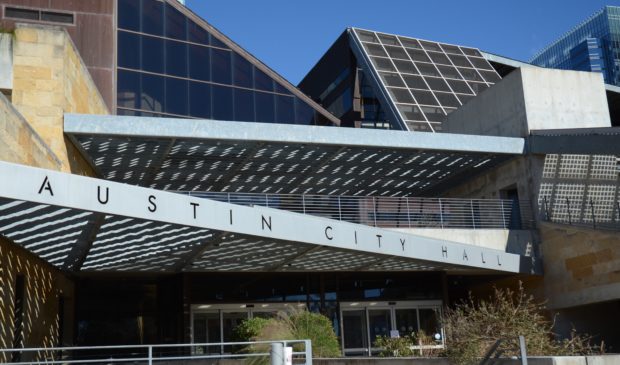Commission fights for seat at CodeNEXT table
Monday, July 3, 2017 by
Joseph Caterine The Zoning and Platting Commission has been perceived by some as the proverbial “stick in the mud” since the CodeNEXT drafting process began earlier this year, but a resolution passed at City Council’s most recent meeting reiterates the commission’s inability to stop the scheduled third reading of the new code by Council next April.
According to the original drafting timeline, the land use commissions were scheduled to present recommendations to Council by June 7. When that date rolled around, the Zoning and Platting Commission had submitted a letter of recommendation, but one calling for more time, and the Planning Commission had not turned anything in.
Sponsored by Council Member Alison Alter, the resolution passed at the June 22 meeting calls for an additional CodeNEXT draft to be created by city staff and third-party consultants incorporating feedback to date that will be reviewed by boards and commissions with a new recommendation deadline of January 11, 2018. In a moment of candor, Alter clarified the resolution’s unwritten purpose.
“The issue that we were trying to address is that if Zoning and Platting is unable to make a recommendation by January 11 and the Planning Commission has voted, the Zoning and Platting Commission is not able to stall the process from moving forward,” Alter said at the meeting. “(The resolution) addresses staff’s concern that Zoning and Platting could hold the process hostage.”
“To be clear,” Mayor Steve Adler said, “I have full faith in our Zoning and Platting Commission in making a recommendation.”
At its regular meeting a couple of days earlier, the Zoning and Platting Commission passed a recommendation in support of Alter’s resolution, motioned by Commissioner Jim Duncan and seconded by Commissioner David King. In that recommendation, commissioners proposed amendments including “and the Zoning and Platting Commission” wherever the Planning Commission was mentioned in the resolution. Those changes were incorporated before the Council meeting, and Alter apologized at the meeting that the omission had been an unintended mistake.
At the Council meeting, King (speaking as an individual during the public hearing) responded to Alter’s comments. “There’s no evidence that the Zoning and Platting Commission has tried to stall anything,” he said. “In fact, we have provided input according to the timelines on the project. We have done what we needed to do in a timely manner.”
In spite of the commission’s efforts to be included as a key decision-maker in the process, Council Member Greg Casar raised the point that city charter only requires a recommendation from the Planning Commission and proposed that another statement be added to clarify that.
The Planning Commission was created by Article X in the city charter, whereas the Zoning and Platting Commission was added later to help bear the load of the city’s growing number of land use cases. It was decided that the Planning Commission would hear applications concerning neighborhood or other planned areas, and Zoning and Platting would hear everything else.
Mayor Pro Tem Kathie Tovo pushed back against Casar’s proposal, arguing that extra language would be redundant. “(The Zoning and Platting Commission do) represent a larger percentage of our city than do the Planning Commission,” she said. “It raises a question in my mind about why there is so much concern about what the Zoning and Platting Commission might do.”
Casar responded that the resolution was really about public notice, and that it would be appropriate to explain to the public the roles of both land use commissions.
The resolution passed unanimously with Casar’s amendment. Council members Pio Renteria and Ellen Troxclair were absent.
Update: Following publication, Alter reached out to the Monitor to clarify her statement and the intent of her resolution. In an email, she wrote, “I do not believe that ZAP should or would hold the process hostage. However, in an effort to allay staff concerns, the final text of the resolution was changed. My statement was intended to point out why the dates were added, to explain that I did not share those concerns, and to affirm that this improved process would not have a delaying effect on adoption of CodeNEXT… The main purpose of the June 22 resolution was to affirm the important role that both the Zoning and Platting Commission and the Planning Commission must play in the CodeNEXT process and to create an additional opportunity for these land use commissions to review CodeNEXT before a draft comes to Council.”
Photo by John Flynn.
Curious about how we got here? Check out the Austin Monitor’s CodeNEXT Timeline.
The Austin Monitor’s work is made possible by donations from the community. Though our reporting covers donors from time to time, we are careful to keep business and editorial efforts separate while maintaining transparency. A complete list of donors is available here, and our code of ethics is explained here.
You're a community leader
And we’re honored you look to us for serious, in-depth news. You know a strong community needs local and dedicated watchdog reporting. We’re here for you and that won’t change. Now will you take the powerful next step and support our nonprofit news organization?









